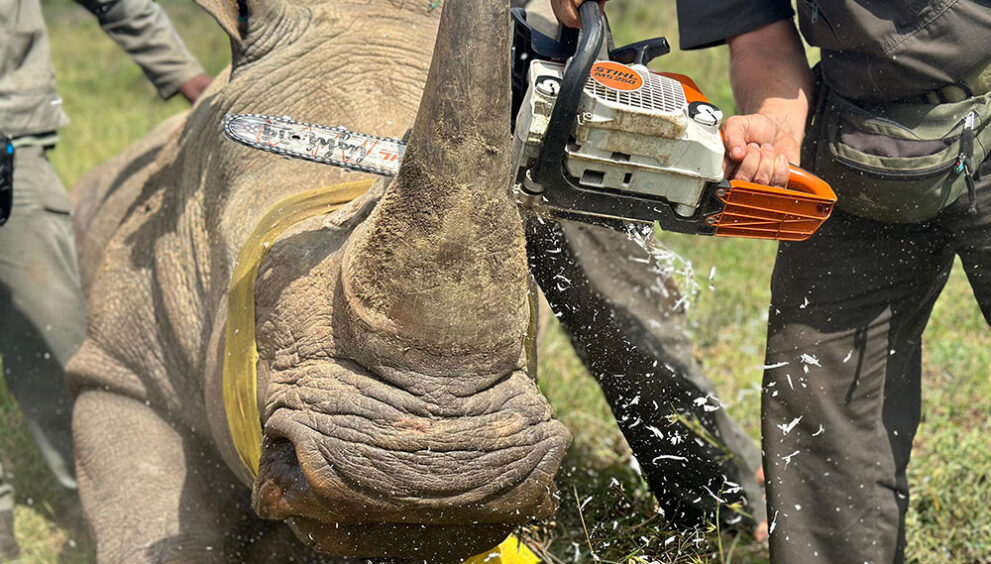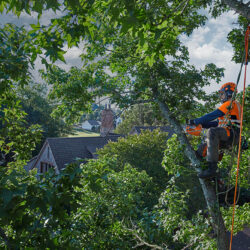There has been an alarming surge in rhino poaching, particularly within the Hluhluwe iMfolozi Park (HiP), forcing Ezemvelo KZN Wildlife, in collaboration with WWF South Africa, to undertake a rhino dehorning programme. KZN lost a total of 325 rhinos in 2023, with 307 of those poached within HiP, despite concerted efforts to stem the tide.
The dehorning programme marks a pivotal moment in Ezemvelo’s anti-poaching efforts, aligning with proven strategies implemented elsewhere, such as in Kruger National Park. Ezemvelo CEO, Sihle Mkhize, stressed that while dehorning is ‘not a panacea’, it forms part of a comprehensive approach to disincentivise poachers. “Rhino dehorning goes against the grain of what we stand for, but the persistent threat posed by poachers has necessitated more drastic measures,” he said.
The dehorning programme complements the recently approved Ezemvelo KZN Guardianship Strategy for Rhinoceros, which aims to significantly reduce poaching incidents. The strategy includes:
o Approximately R11 million from the KZN province to erect a smart fence to cover a significant portion of HiP where poaching levels are high;
o Financial support of +-R40 million from the Dept of Forestry, Fisheries, and the Environment to extend the area protected by the smart fence;
o Increasing field ranger numbers from 45 to 88 and improving ranger living conditions;
o Installing trackers in all vehicles;
o Improving relations with adjacent communities;
o Additional helicopter hours with night vision capability;
o The appointment of Sthembiso Ndlovu as the Senior Manager: Rhino Protection
To ensure that the dehorning process is as fast and as safe as possible, STIHL SA has donated equipment to WWF South Africa to support this cause, including eight high-powered chainsaws, sharpeners and protective chainsaw pants to be worn by those doing the dehorning.
“If removing their horns is the only way we can save the lives of our magnificent rhinos, then it has to be done, albeit with a sense of sadness,” says STIHL managing director, Hayden Hutton. “We are humbled to be able to play a part in this project, undertaken in such tragic circumstances. We hope this will ensure the survival of this species so that the next generation of humans is able to see rhinos in their natural environment – not only in picture books.”





